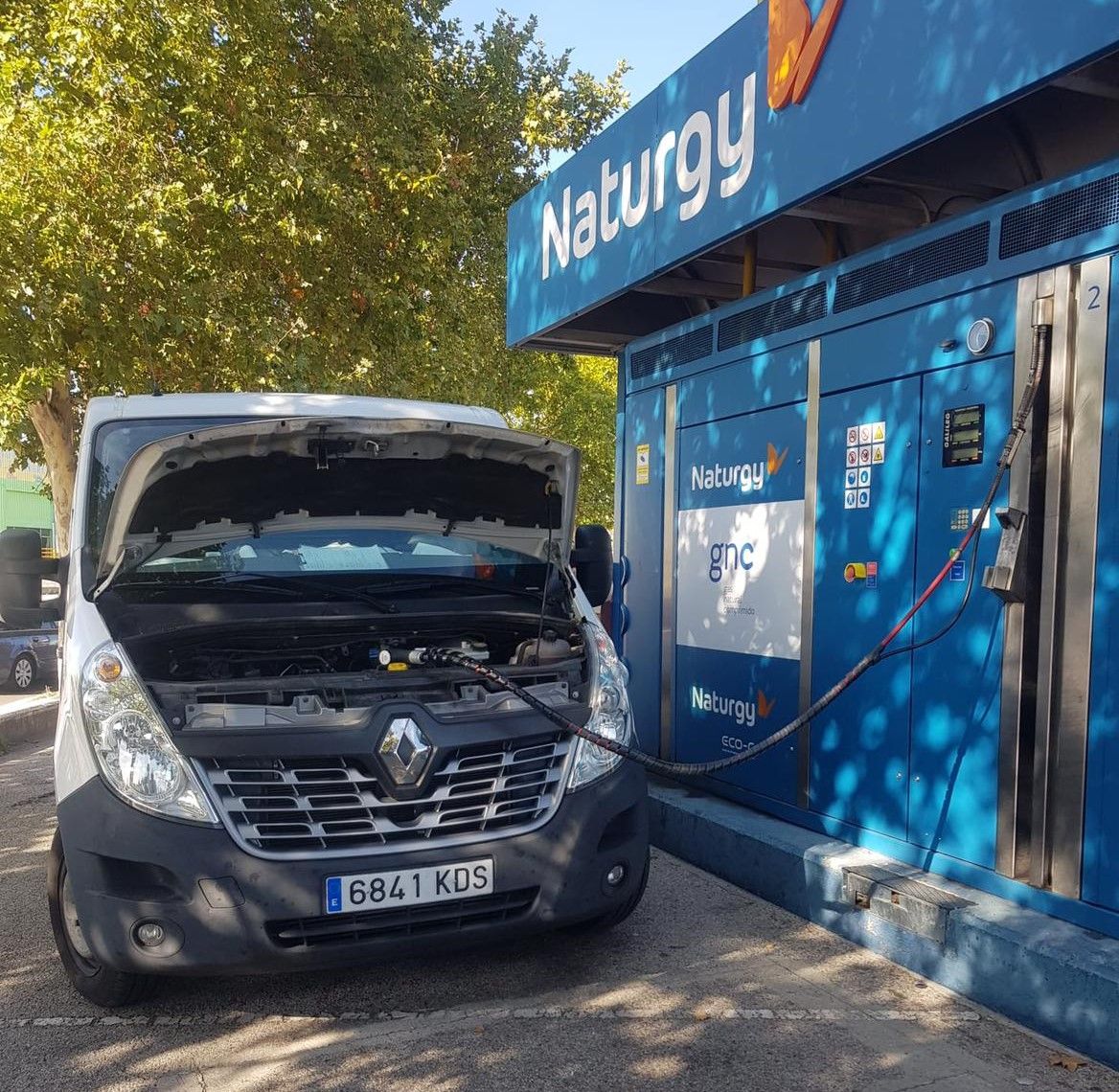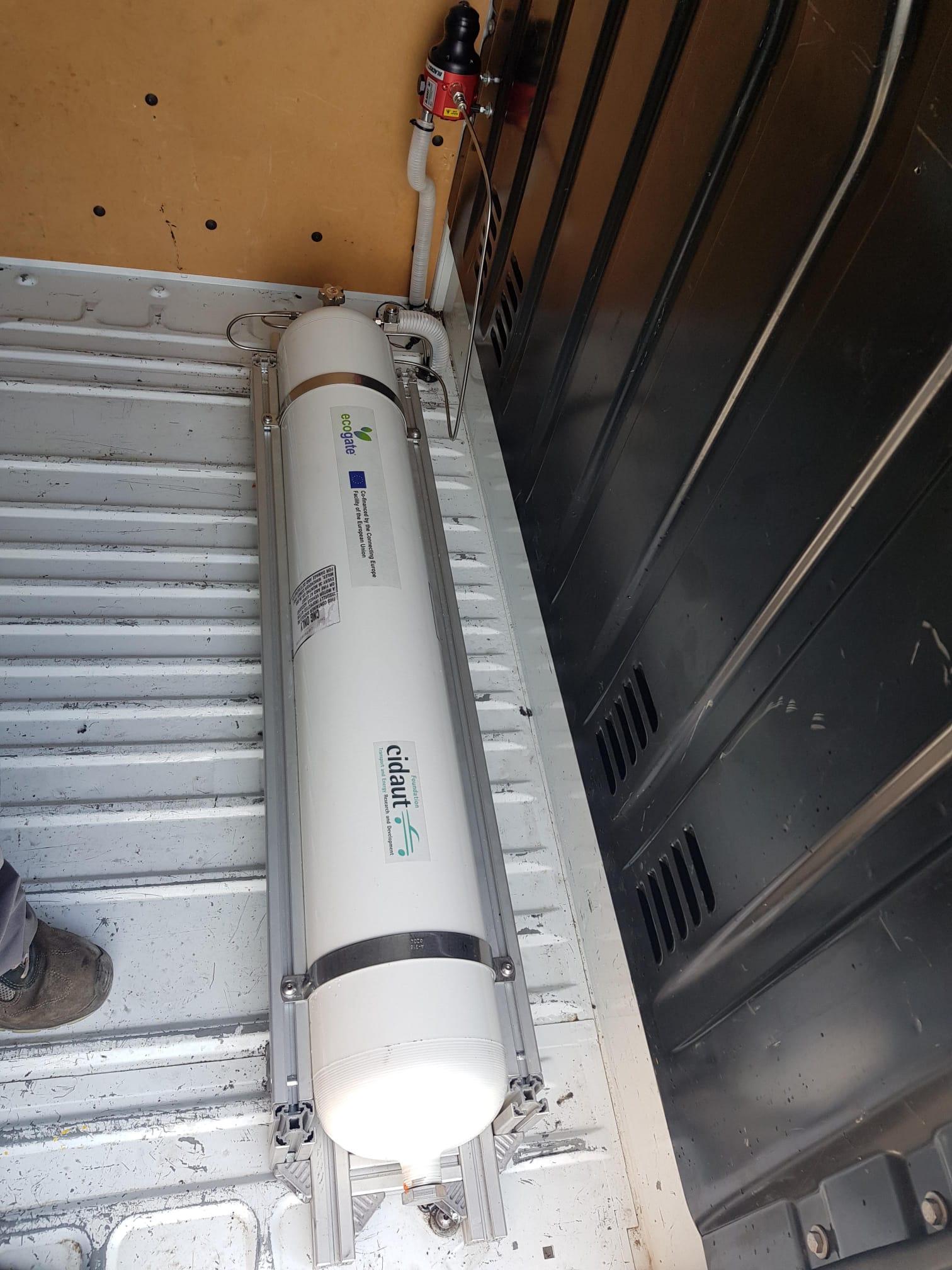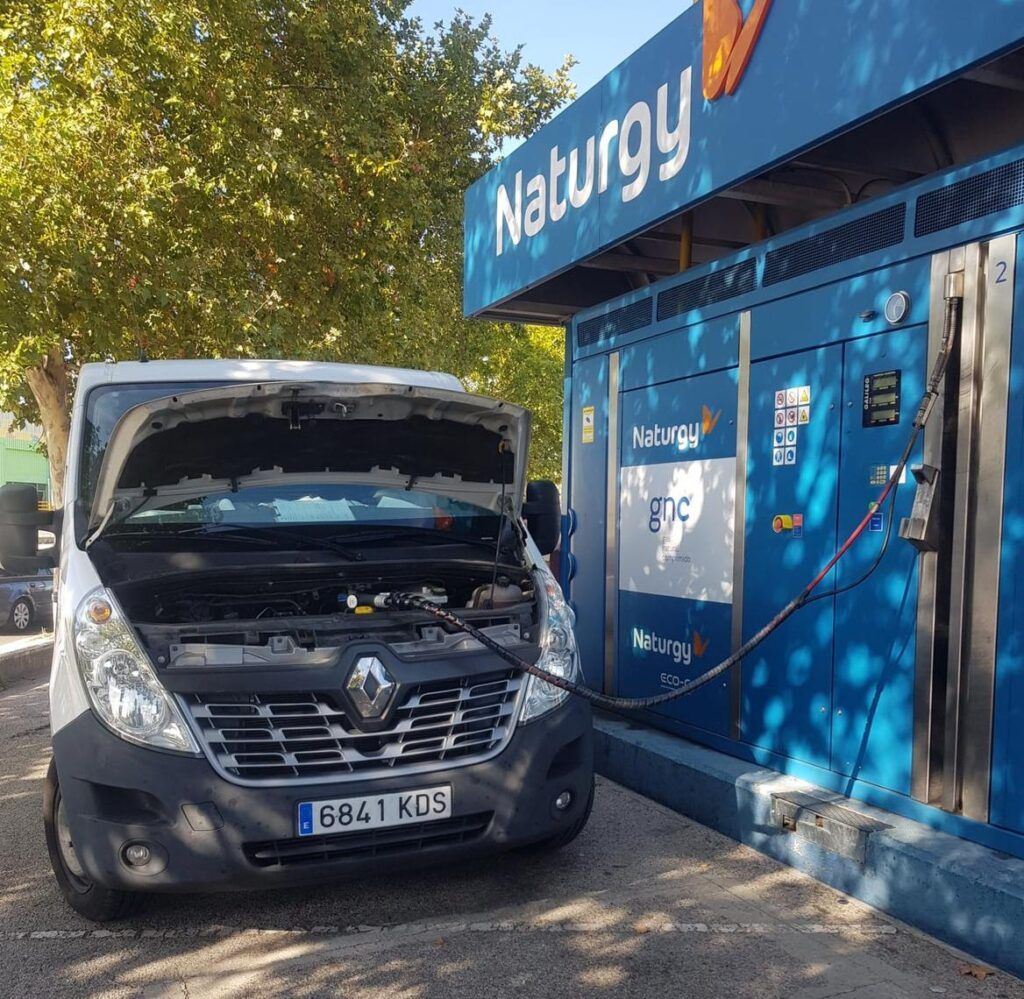 |  |
CIDAUT successfully completes the pilot tests on the use of ANG tanks in dual-fuel converted vehicle within ECOGATE project.
The overall objective of the ECO-GATE project (European COrridors for natural GAs Transport Efficiency) is to study efficiency improvement of conventional and renewable Natural Gas Vehicles (NGV) market in the whole Atlantic Corridor (Portugal, Spain and France), the North Sea-Mediterranean Corridor (France) and the Spanish Mediterranean Corridor (Spain) through new technologies and innovative solutions for supply logistic services, cleaner fuels, refuelling infrastructure, vehicle and components manufacturers and operational processes.
ECO-GATE is run by a consortium of more than 20 companies from Spain, Portugal, France/ Germany.
CIDAUT innovation in the ECOGATE project is focused on the storage of natural gas on-board at lower pressure than Compressed Natural Gas (CNG), specifically in the adsorbed natural gas storage (ANG). CIDAUT has carried out the characterization of the loading and unloading processes of this type of adsorbed natural gas storage systems in an experimental facility and as a final step, the adsorbent natural gas (ANG) storage technology has been validated in a pilot test on a dual-diesel van.
This system stores more energy per unit volume at the same pressure as the storage of compressed natural gas (CNG). ANG allows the use of tanks that work at lower pressure (60 bar), with the advantages that this entails: greater flexibility in the design of the tank, greater formability, lower refuelling costs, the possibility of home refuelling and greater safety. With the installation of a pressure regulator, it has been possible to refuel these vehicles in conventional refuelling stations, limiting their filling pressure to 60 bar.
Despite the decrease in activity due to covid-19, since February 2020, the vehicle has travelled more than 25,000 km and consumed about 100kg of NGV through this ANG tank.
During this period, vehicle operation, refuelling and vehicle operating conditions were monitored to enable conclusions to be drawn from this in-vehicle research.
The main results of this pilot test showed that the type of transformation of the vehicle to dual-fuel, as well as the operating conditions (mainly urban environment) lead to not very high degrees of substitution of diesel for natural gas. However, the possibility of using this type of ANG tanks in gas vehicles has been corroborated, allowing them to be refuelled in conventional gas refuelling stations, although they are best filled at slow-charge, low-pressure supply points where the energy cost of refuelling is optimised.
“The sole responsibility of this publication lies with the author. The European Union is not responsible for any use that may be made of the information contained therein.”


More info about ECOGATE project: https://eco-gate.eu/
